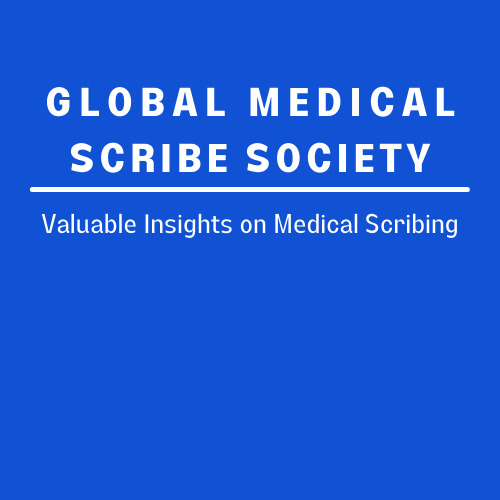
Orthopedic surgeon burnout
Orthopedic surgery is undoubtedly one of the most demanding medical specialties, so much so that the burnout rates have reached an alarming tipping point among orthopedic surgeons. The overwhelming burden of bureaucratic tasks, such as filling out exhaustive amounts of patient health records is advocated as the main culprit. It’s an unfortunate reality that physicians spend twice as much time on painstaking charting as they do on actual patient care. This not only leads to burnout but also affects patient-provider relationships. The simplest and most effective solution to this problem is the adoption of medical scribes – a solution that can provide more meaningful patient interactions and cut down on the amount of time needed for data entry into electronic health records (EHRs
Electronic Health Records (EHRs) and Their Impact on Orthopedic Surgeon Burnout
The well-being of physicians and the pressing issue of burnout have taken center stage, particularly within the orthopedic field. Orthopedic surgeons have pinpointed administrative and regulatory burdens as their most formidable challenges. Interestingly, they derive great satisfaction from their surgical work. However, this satisfaction is overshadowed by the startling revelation that orthopedic surgery has reported burnout rates ranging from 40% to 60%. According to a survey conducted in 2017, encompassing 15,000 physicians across 29 different specialties, a staggering 34% of orthopedic surgeons reported experiencing burnout symptoms, with nearly 14% grappling with both burnout and depression. Even more disheartening is the revelation that the pressures and stresses of their heavy workload have tragically led at least 34 orthopedic surgeons to take their own lives. Hence, a multifactorial approach is needed and the integration of medical scribes emerges as one promising solution to alleviate the stressors that weigh on orthopedic surgeons.
A Glimpse into the Daily Life of an Orthopedic Surgeon
The daily routine of an orthopedic surgeon bears no resemblance to the nine-to-five office grind. There’s no room for monotonous daily routines as their time is divided between outpatient clinic work and performing surgeries in the operating room. Their day encompasses a dynamic mix of interactions with new patients, follow-ups, preoperative assessments, and post-operative care. Amidst this demanding schedule, they have to deal with mountains of paperwork, including the completion of patient notes and operation reports. At times, this translates into late-night office stays, grappling with patient charts. The time invested in documentation, particularly after hours, has emerged as a significant driver of burnout. Amidst these challenges, medical scribes have emerged as a potential solution, providing relief from the documentation burden.
The Astronomical Costs of Burnout
The financial repercussions of physician burnout are nothing short of staggering. Were you aware that it costs anywhere from $500,000 to over $1 million to replace a physician who quits because of burnout? Addressing this issue carries implications far beyond mere cost savings; it has the potential to generate substantial additional income. Consider the following scenario: An orthopedic surgeon spends an excessive amount of time grappling with EHR-related tasks, leaving very little time for direct patient care. Using a medical scribe allows the surgeon to spend an additional three hours each day on clinical work instead of administrative tasks. The orthopedic surgeon could now perform three additional joint replacement procedures, yielding an extra $52,500 in marginal revenue. The financial impact of burnout mitigation thus becomes evident.
Can Scribes Enhance Productivity and Well-being for Orthopedic Surgeons?
The two leading causes of orthopedic surgeon burnout among orthopedic surgeons are “excessive bureaucratic tasks such as charting and paperwork” and “the increasing computerization of practice, i.e., the use of EHRs.” These factors were cited by 65% and 44% of orthopedic surgeons, respectively. Various studies have demonstrated that medical scribes have consistently improved physician quality of life, reduced burnout, and heightened patient satisfaction. Furthermore, scribes have significantly reduced the time orthopedic surgeons spend on documentation. Adoption of scribes in orthopedic sports medicine clinics has shown reductions in documentation time, enhanced productivity, and a positive impact on physician well-being.
Preventing and Addressing Burnout Among Orthopedic Surgeons
Orthopedic surgeons have adopted various strategies to proactively address and manage burnout:
- Dr. Philip Louie, affiliated with Virginia Mason Franciscan Health, places a strong emphasis on spending quality time with loved ones, actively disconnecting and engaging in relaxing activities, and nurturing hobbies that bring joy and fulfillment.
- Dr. Mark Flanum, practicing in Anchorage, Alaska, places family time, regular exercise, and taking well-deserved vacations at the forefront of his burnout prevention plan.
- Dr. Jason Snibbe, based in Los Angeles, underscores the significance of regular exercise as a stress management tool. He also prioritizes spending meaningful time with friends and encourages open discussions to manage stress effectively.
- Dr. Anthony Melillo, practicing in Houston, finds solace in a holistic approach to well-being. His strategies include a commitment to regular workouts, meditation for mental clarity, prioritizing restorative sleep, taking rejuvenating vacations, and limiting after-hours emergency room calls.
- Dr. Andrew Chung, practicing in Phoenix, focuses on maintaining a clear boundary between work and personal life. He dedicates time to pursue personal interests, actively seeks opportunities for learning new skills, and fosters friendships beyond the medical field to do away with stress.
- Additionally, Dr. Ryan Hess, an orthopedic surgeon who has embraced the use of a medical scribe since 2016, attests to the significant benefits. He reports increased efficiency, the capacity to see more patients per hour, and a substantial boost in revenue. Dr. Hess values the support of medical scribes to such an extent that he expresses a willingness to compensate them generously, acknowledging their pivotal role in reducing burnout, enhancing productivity, improving patient care, and optimizing documentation.
- Dr. Antonio Webb, an orthopedic surgeon based in San Antonio, Texas, underscores the importance of achieving a healthy work-life balance as a means to manage workplace stress and prevent burnout. His advice to fellow orthopedic surgeons is to cultivate passions and interests outside of medicine, whether it involves sports or indulging in travel.
Are you an orthopedic surgeon grappling with the challenges posed by the COVID-19 surgical backlog and the overwhelming paperwork? Breathe easy. There are many reliable scribe service providers out there who provide documentation assistance. They have an experienced team of remote orthopedic medical scribes who provide the much-needed support and prevent burnout.
